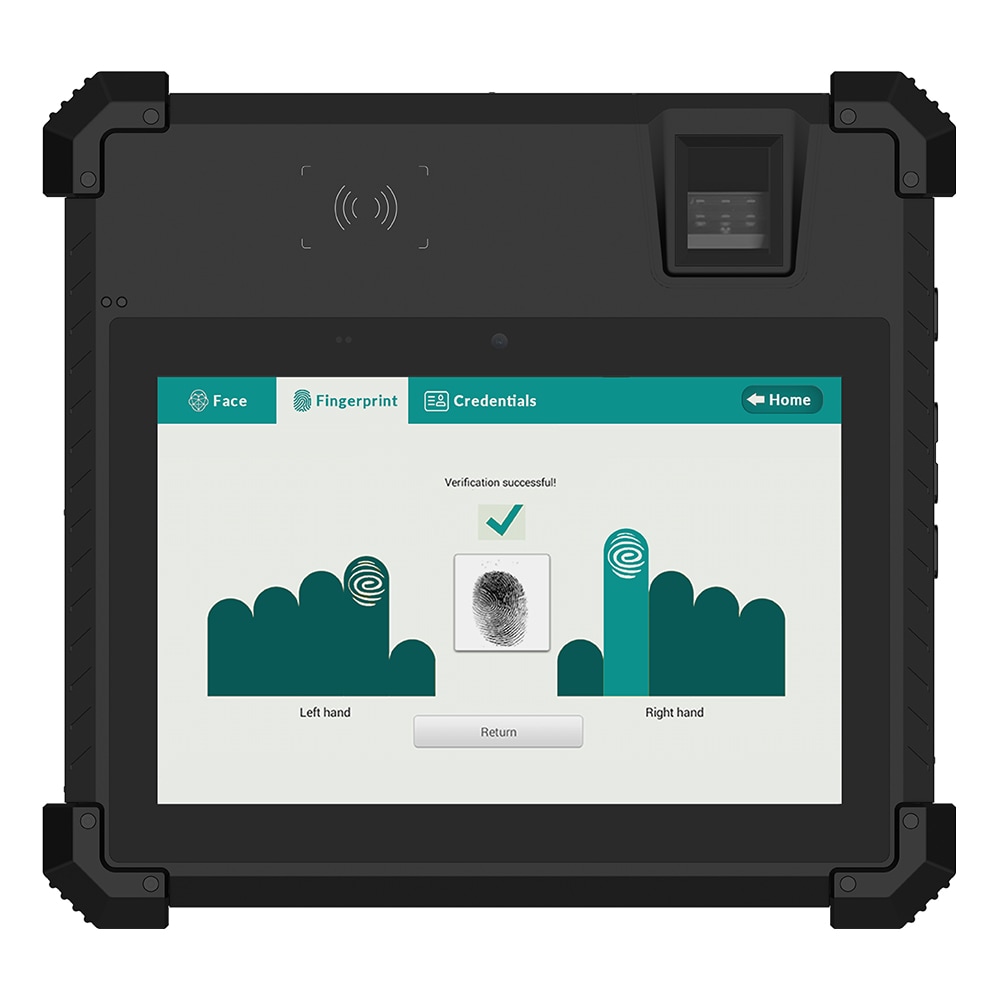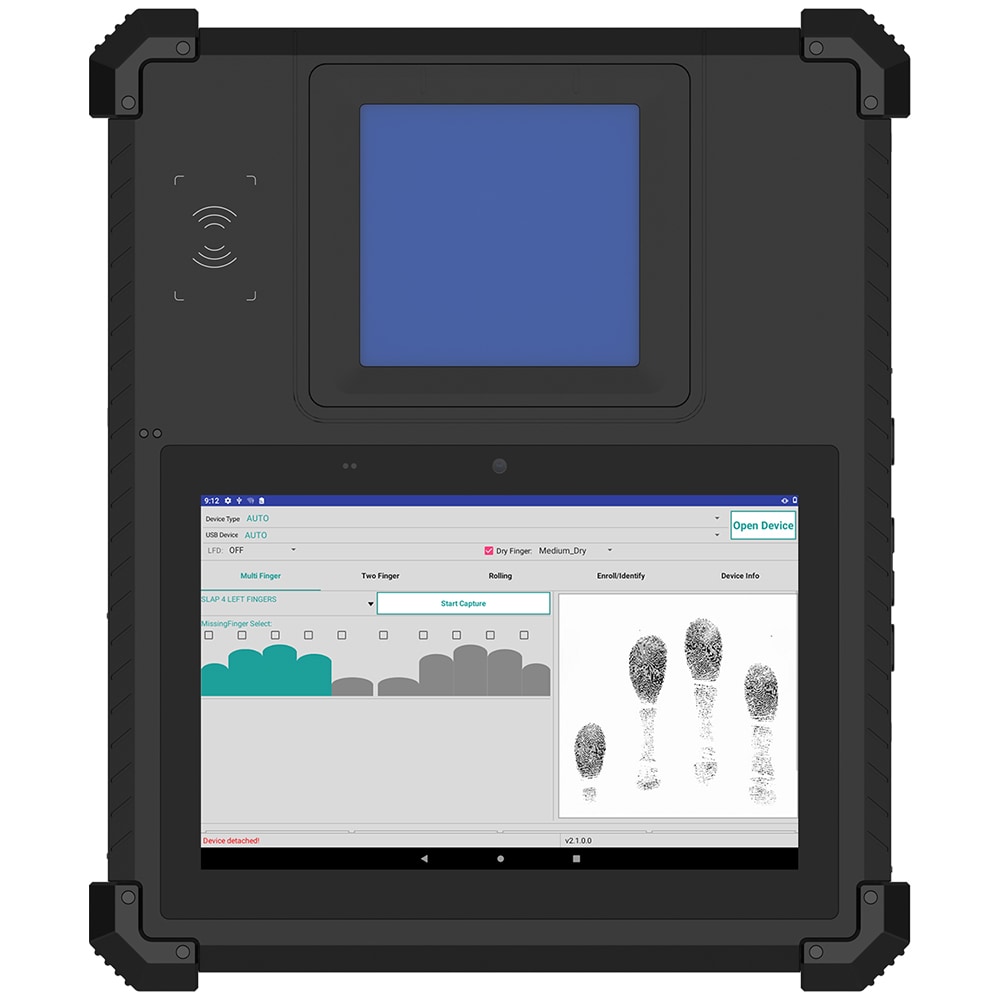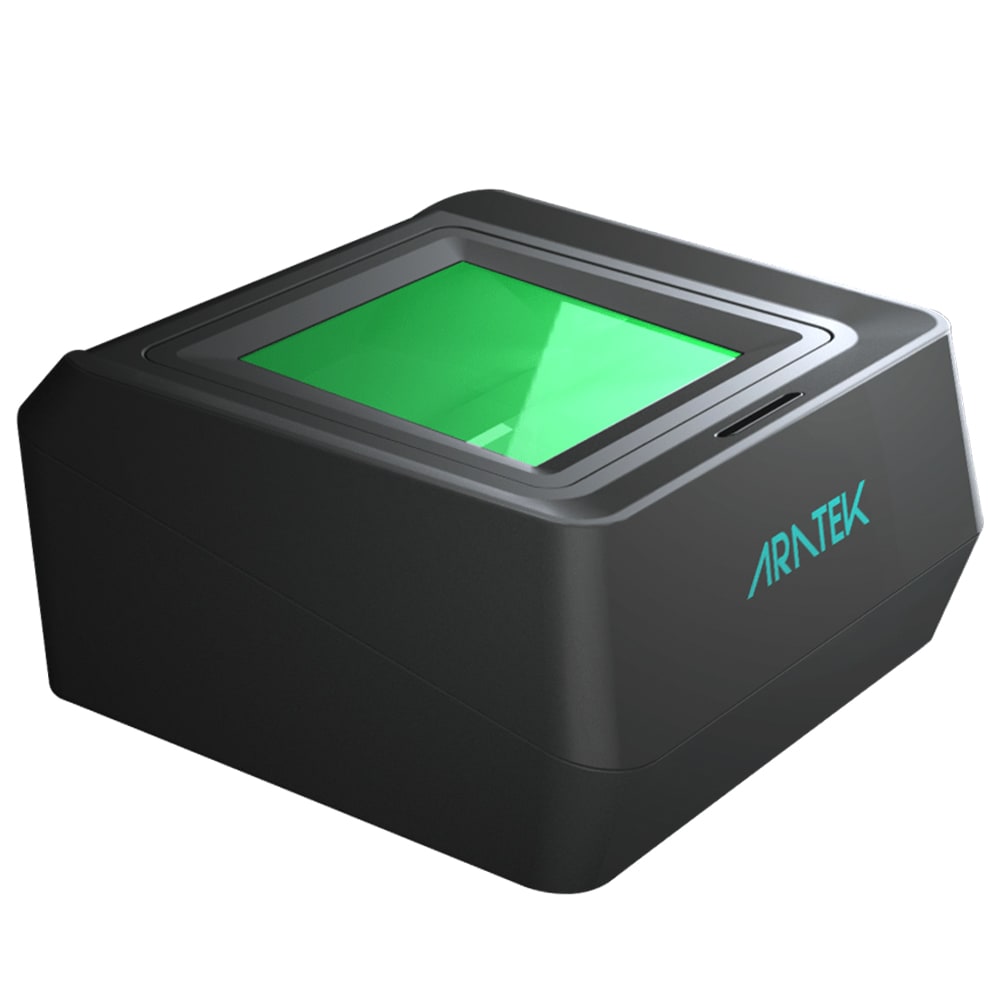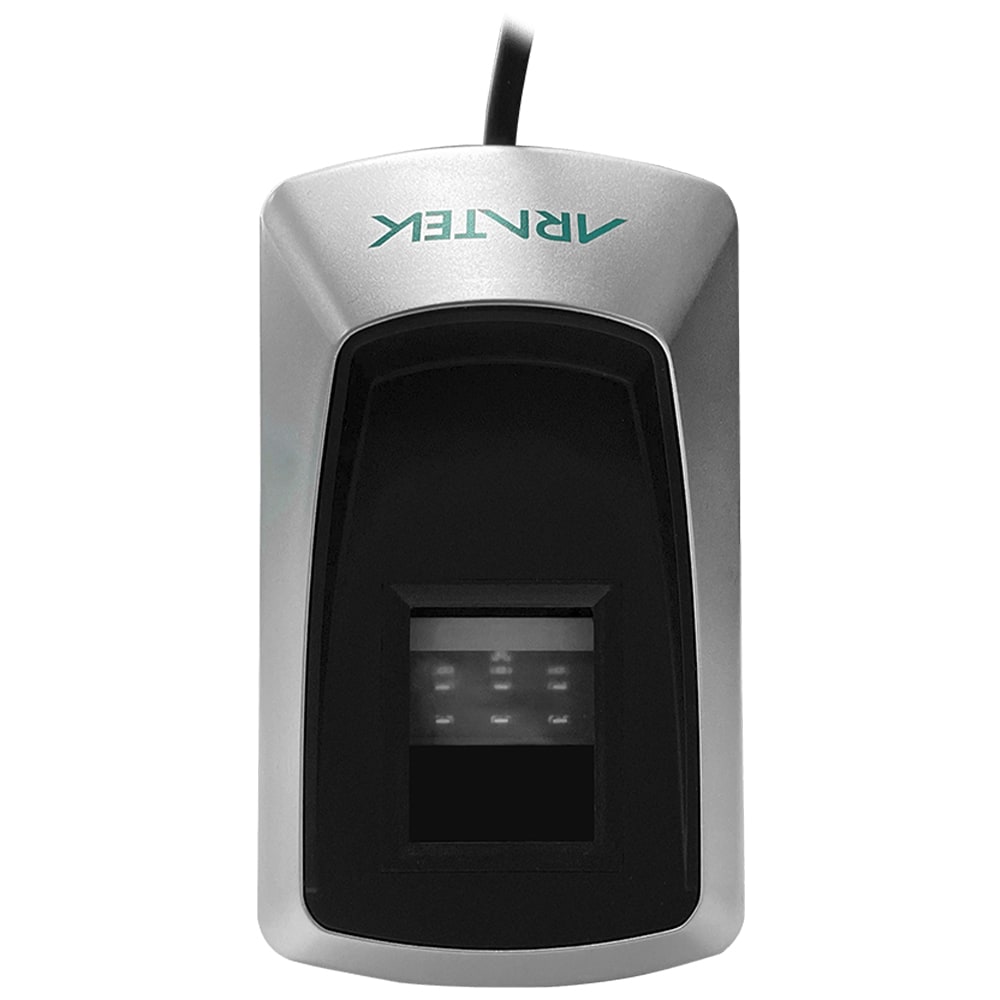
PRODUCT

Smarter Biometrics, Stronger Digital Identity.
VIEW ALL
product finder
solution
case study
support
Company

Identifying the World. Easily, Securely.


years of solid experience
20+
.jpg)
400+
customised projects



EN
.avif)

Picture a world where a swift fingerprint scan or facial recognition can not only safeguard your medical records but also ensure you receive personalized and accurate care. This isn't a distant dream but a present-day reality, courtesy of biometric technology. Biometrics— the art and science of identifying individuals based on their unique physical or behavioral traits— is breaking new ground in healthcare, transforming how providers manage patient data, enhance safety, and deliver customized care.
In this blog post, we'll be taking a deeper dive into the power of biometrics in healthcare and the potential it holds for revolutionizing the industry. We'll delve into the real-world applications, benefits, and emerging trends that make biometrics a powerful force in the healthcare landscape. So, join us in an exploration of biometrics technology and discover how it's reshaping the healthcare experience for professionals and patients alike.
Biometrics, the identification technology that recognizes individuals based on their unique physical or behavioral characteristics, is making waves across various industries, and healthcare is no exception. The transformative power of biometrics in healthcare goes beyond mere theory – it's already in action, changing lives and making a significant impact on the way medical services are delivered. In this section, we'll explore some inspiring real-world applications and case studies that showcase how biometric technology is being utilized to revolutionize various aspects of the healthcare industry, from patient identification to telemedicine and access control.
As healthcare providers strive to offer personalized and efficient care, biometric patient identification has emerged as an indispensable tool. By implementing a Know Your Patient (KYP) process that incorporates biometric authentication, hospitals and clinics can streamline patient registration, ensuring accuracy and minimizing the risk of medical errors.

For example, Geisinger Medical Center in the United States has successfully implemented a biometric patient identification system based on facial recognition technology. This biometric system enables patients to quickly and securely confirm their identities by simply scanning their faces, ensuring that they're correctly matched with their patient records. By significantly reducing patient wait times and minimizing the risk of identification errors, this hospital has not only improved overall patient satisfaction but also enhanced the efficiency of its administrative workflows.
Telemedicine and remote patient monitoring have taken center stage, especially during the COVID-19 pandemic. Biometrics plays a vital role in the growth of telemedicine by enabling secure authentication for remote visits, using biometric wearables, and leveraging the Internet of Medical Things (IoMT) to monitor patients' health remotely.

Healthcare providers can deliver timely and accurate care, improve patient outcomes, and expand access to health care services for patients in remote or underserved areas by utilizing biometrics in telemedicine, all while ensuring the security of remote visits.
Healthcare facilities are increasingly using biometric access control systems to secure access to sensitive areas and equipment.

This helps prevent unauthorized individuals from gaining access to sensitive areas and improves patient safety.
{{product-cta}}
For instance, the Martin Luther King Jr. Community Hospital in USA has adopted a biometric access control system based on facial recognition technology to secure its laboratories and restricted areas. By verifying the identity of personnel seeking access to these areas, the institution can prevent unauthorized access, protect sensitive data and research, and maintain a secure environment for both staff and patients.
Biometrics are playing an important role in clinical trials and research, allowing researchers to gather accurate data without compromising patient privacy. Using biometric technology to accurately identify and monitor participants, researchers can ensure that only qualified participants are included in their studies.

Biometric technology also helps researchers in managing data securely, reduce data discrepancies between participating institutions, and ensure that only authorized individuals can view or access sensitive research data.
Biometric time and attendance systems are being utilized in some healthcare organizations to help streamline workflows and track employee hours. By replacing traditional time-tracking methods with biometric authentication, healthcare organizations can automate the entire time-tracking process and ensure accurate employee data.

A prime example of this can be found in the state of Odisha, India, where all faculty, tutors, and senior residents in medical colleges, as well as doctors in government hospitals, are required to mark their attendance using the Aadhaar-enabled biometric attendance system (AEBAS), which utilizes the fingerprint scanner for accurate authentication. By implementing AEBAS and leveraging fingerprint biometrics, medical institutions in Odisha have been able to streamline attendance tracking, minimize time discrepancies, and improve overall efficiency.
This system promotes accountability and transparency among medical professionals by collecting biometric data to ensure that they are present and engaged in their duties. In turn, this fosters a more reliable and effective healthcare environment for patients and staff alike.
It's no secret that technology has been revolutionizing various industries, and healthcare is no exception. The advent of biometrics has brought a paradigm shift in the way medical practices operate, making it more efficient, secure, and personalized than ever before. Let's explore some of the most significant benefits that make biometric authentication an essential tool for healthcare providers, medical staff, and patients alike.
According to a WHO report, a staggering 2.6 million people perish each year due to medical errors, including errors in patient identification, costing health organizations in low to middle-income countries a whopping $42 billion. Moreover, the Medical Theft Alliance reveals that more than 2 million American citizens have fallen victim to medical identity theft, with cases on the rise annually.
Gone are the days of patient misidentification. Thanks to biometric technology, like fingerprint recognition, iris recognition and facial recognition, accurately identifying patients has become a breeze. These cutting-edge identification systems ensure that patients are matched with the right medical records, reducing medical errors and enhancing patient safety.
A study delving into the effectiveness of a biometric patient identification system discovered that it achieved over 80% accuracy in the majority of cases, showcasing its immense potential to mitigate both patient misidentification and medical identity theft. This added level of accuracy is also beneficial to healthcare providers and medical staff, as they no longer have to rely on guesswork or manual data entry when identifying patients.
A HOPAA's research reveals that between 2009 and 2022, a staggering 5,150 healthcare data breaches were reported to the HHS Office for Civil Rights. These breaches, involving 500 or more records, led to the exposure or impermissible disclosure of 382,262,109 healthcare records. Just for a little perspective, that's more than 1.2 times the population of the United States.
In recent years, biometric authentication has quickly become the new gold standard for protecting sensitive patient information. By implementing biometric modality for digital identity management, healthcare institutions can strengthen their security protocols and protect patient data from malicious actors. Biometric authentication also makes it easier for them to control access to electronic health records (EHR) and other confidential information, making sure only authorized personnel can view or modify patient data. This not only maintains compliance with privacy regulations like HIPAA but also bolsters overall data security.
Healthcare facilities must maintain a secure environment, both for their personnel and the patients they serve. Biometric solutions offer robust access control for healthcare facilities, ensuring that only authorized personnel can access restricted areas or specific medical equipment.
Incorporating biometric access control for health systems, emergency departments, medical centers, and even research labs can ensure that only authorized personnel gain access to facilities and confidential information. This improves the overall security posture for healthcare organizations and provides peace of mind for patients.
The COVID-19 pandemic has pushed telemedicine to the forefront of healthcare. With medical centers and hospital systems struggling to accommodate a surge in patients, many organizations have had to resort to remote patient monitoring and tele-health services as alternative treatment options.
Biometrics and tele-health services are a dynamic duo, working hand-in-hand to improve patient care. With biometric wearables and sensors, healthcare providers can monitor patients' health remotely, enabling informed decision-making and personalized care. This real-time access to health information also expands access to healthcare services for patients in remote or underserved areas.
Clinical trials are an essential part of the healthcare industry. They help to uncover the efficacy and safety of new treatments and medicines, ultimately advancing medical science. However, a lack of efficient and secure methods for participant identification has long been an obstacle to making such trials successful.
Biometrics technology is a game-changer for medical research and clinical trials, providing accurate and reliable patient data collection. By reducing errors and inconsistencies in data gathering, biometrics can automate the process of subject identification and drive improved study outcomes.
Incorporating biometrics into healthcare administration is like injecting a healthy dose of efficiency serum into the daily routine. By automating processes and reducing manual tasks, biometrics technology helps healthcare facilities save time and resources while boosting overall productivity.
Imagine the time-consuming process of manually verifying patient identities, cross-checking electronic medical records, managing access to sensitive data, and tracking employee attendance. Biometric authentication, such as fingerprint or facial recognition, can transform these tasks by providing quick and secure identification for both patients and staff. With biometrics streamlining administrative processes, health care professionals can spend less time on mundane tasks and focus on what truly matters – providing top-notch patient care.
By implementing biometric solutions like the iris scan system, facial recognition system, or fingerprint identification system into various aspects of healthcare administration, from patient matching to employee attendance tracking, health care providers can optimize workflows, minimize time discrepancies, and foster a more reliable and effective working environment for both staff and patients.
Self-service healthcare applications powered by biometrics are revolutionizing the way patients interact with their healthcare providers, giving patients the reins to navigate their health journeys with unparalleled ease and autonomy.
An example of biometric technology being used in self-service healthcare is the use of biometric sensors at check-in kiosks. This allows for quicker and more accurate identification of patients, which ultimately reduces waiting times. Additionally, patients can also manage their appointments, medications, and health information securely through biometric-enabled portals on their personal laptops or mobile devices, eliminating the need to print out the paperwork and wait for administrative staff.
By incorporating biometric authentication in self-service healthcare applications, healthcare providers can correctly identify patients and ensure the security of their biometric data, while patients will benefit from greater convenience and control over their medical information. This is a win-win situation for both the patient and the healthcare sector because it improves the patient experience while also streamlining administrative tasks.
The healthcare sector is finding many different applications for artificial intelligence (AI), from diagnosing illnesses to predicting patient outcomes and providing insights into population health. As AI continues to revolutionize healthcare, biometrics is joining forces with AI to create smarter, more secure, and personalized healthcare solutions. By providing accurate and reliable patient identification, biometric systems ensure that sensitive patient records are securely accessed and used by AI-powered systems for a variety of applications.
For instance, AI algorithms that analyze electronic health records (EHR) to predict potential health risks or suggest personalized treatment plans greatly benefit from the precise patient identification provided by biometrics. This ensures that the right data is used for the right patient, avoiding errors and enhancing the effectiveness of AI-driven recommendations.
Biometrics and AI together have the potential to revolutionize healthcare, as they can be used to uncover hidden patterns in patient data, detect potential health issues earlier, and automate routine administrative tasks. Ultimately, this could result in more accurate diagnoses, better patient outcomes, and improved healthcare management.
As we've explored throughout this article, biometrics technology has already begun to make a significant impact on the healthcare industry, streamlining processes, enhancing security, and improving patient care. However, this is just the beginning. As we look towards the future, we can anticipate new trends and advancements in biometrics and healthcare that will continue to shape and transform the way we deliver and manage medical services.
As the use of biometrics in healthcare continues to expand, it is essential to address ethical considerations and develop appropriate regulatory frameworks. Ensuring that biometric data is collected, stored, and used responsibly will be a top priority for healthcare organizations and regulatory bodies alike. Balancing the benefits of advanced technology with privacy, security, and ethical concerns will be crucial to creating a sustainable and responsible future for biometrics in healthcare.
In conclusion, biometrics is truly a game-changer in the healthcare industry, transforming the way we approach patient identification, data security, telemedicine, and more. By keeping a keen eye on emerging trends and harnessing the potential of biometrics, we can look forward to a future where healthcare is not only more efficient but also more personalized, secure, and accessible for everyone. As we continue to innovate and explore the many applications of biometrics in healthcare, there is no doubt that this technology will play a critical role in shaping the healthcare experience for both professionals and patients.
So, let's embrace these innovative advancements and witness the incredible impact they will have on shaping the healthcare landscape of tomorrow.
.avif)
Use our product finder to pinpoint the ideal product for your needs.


















